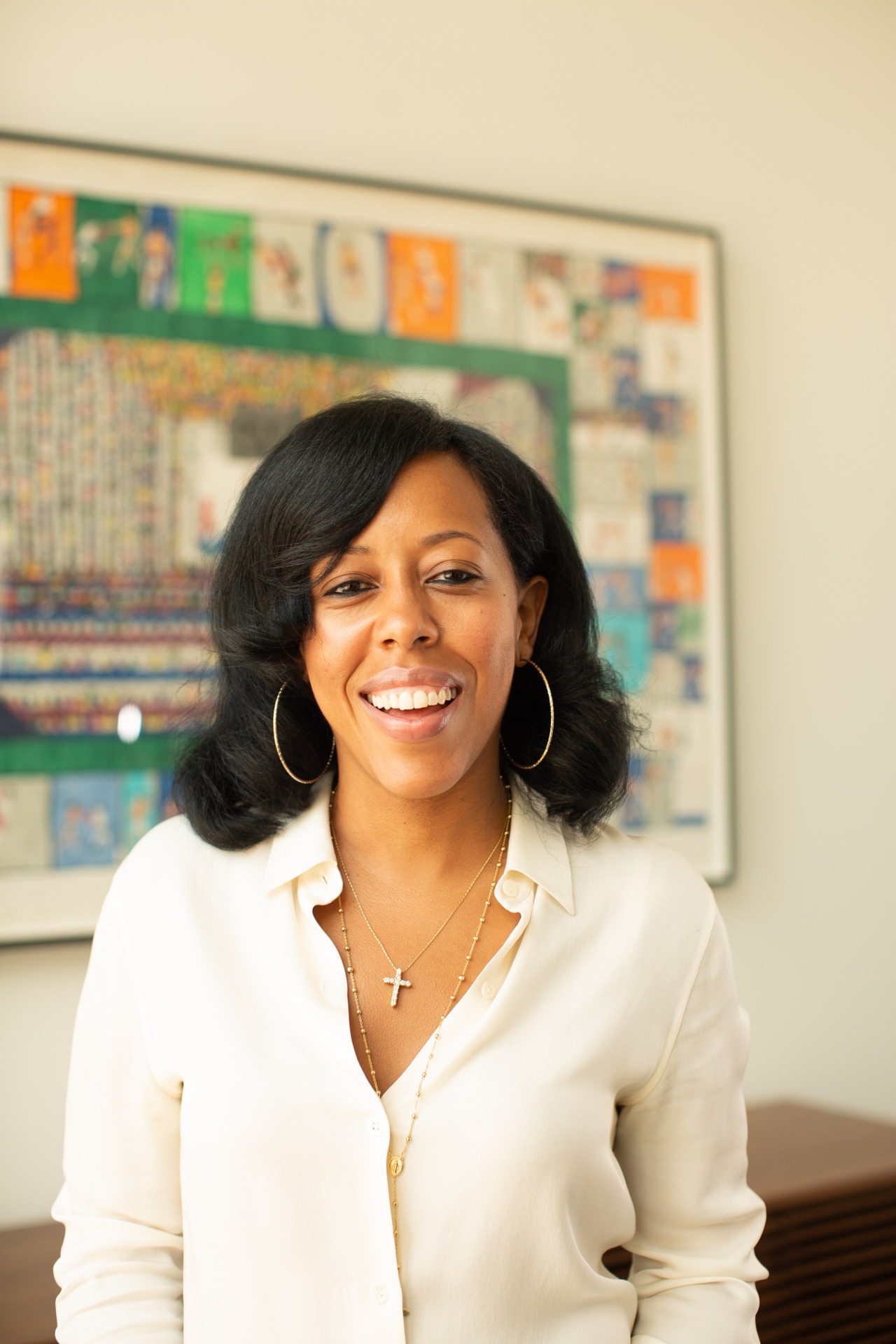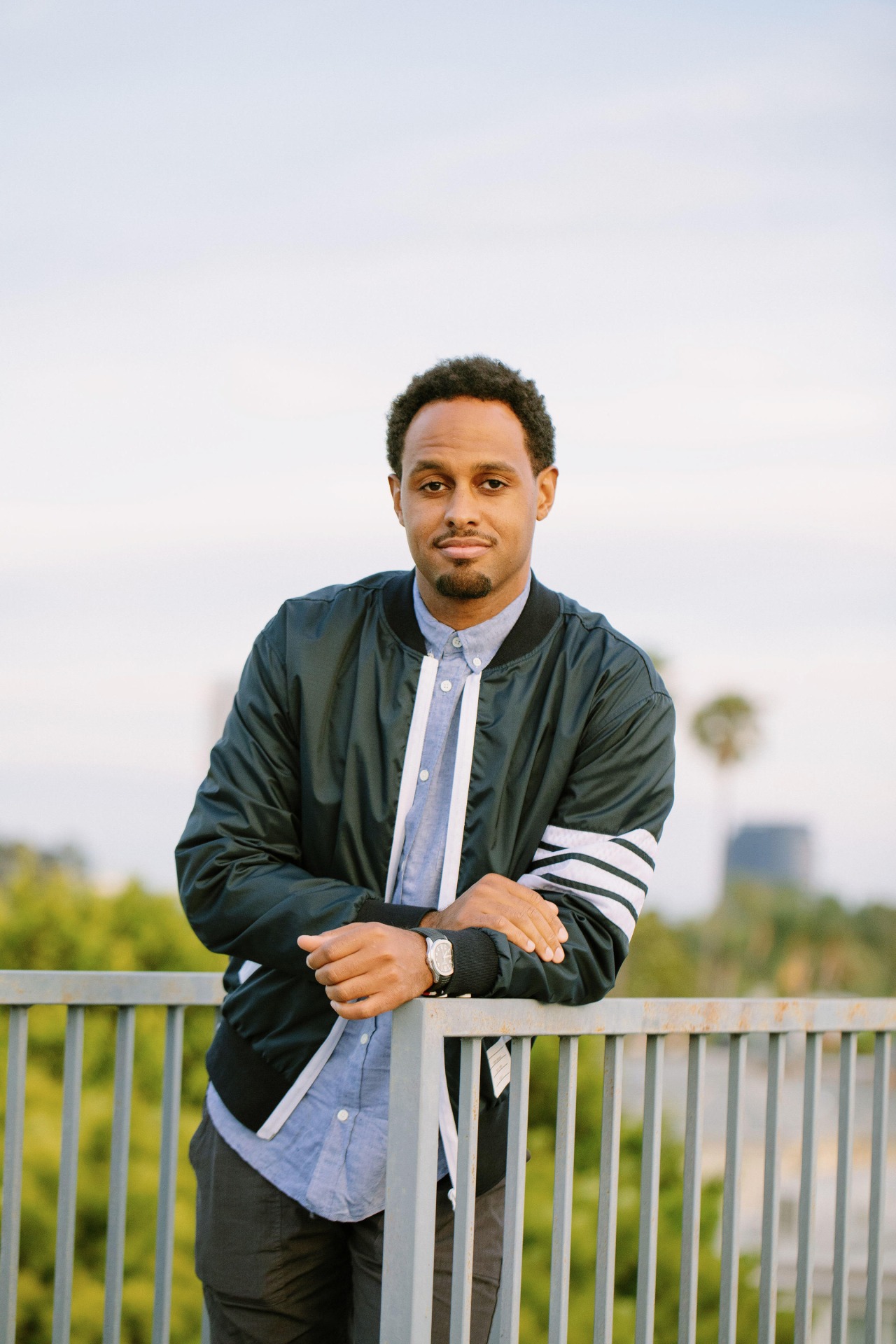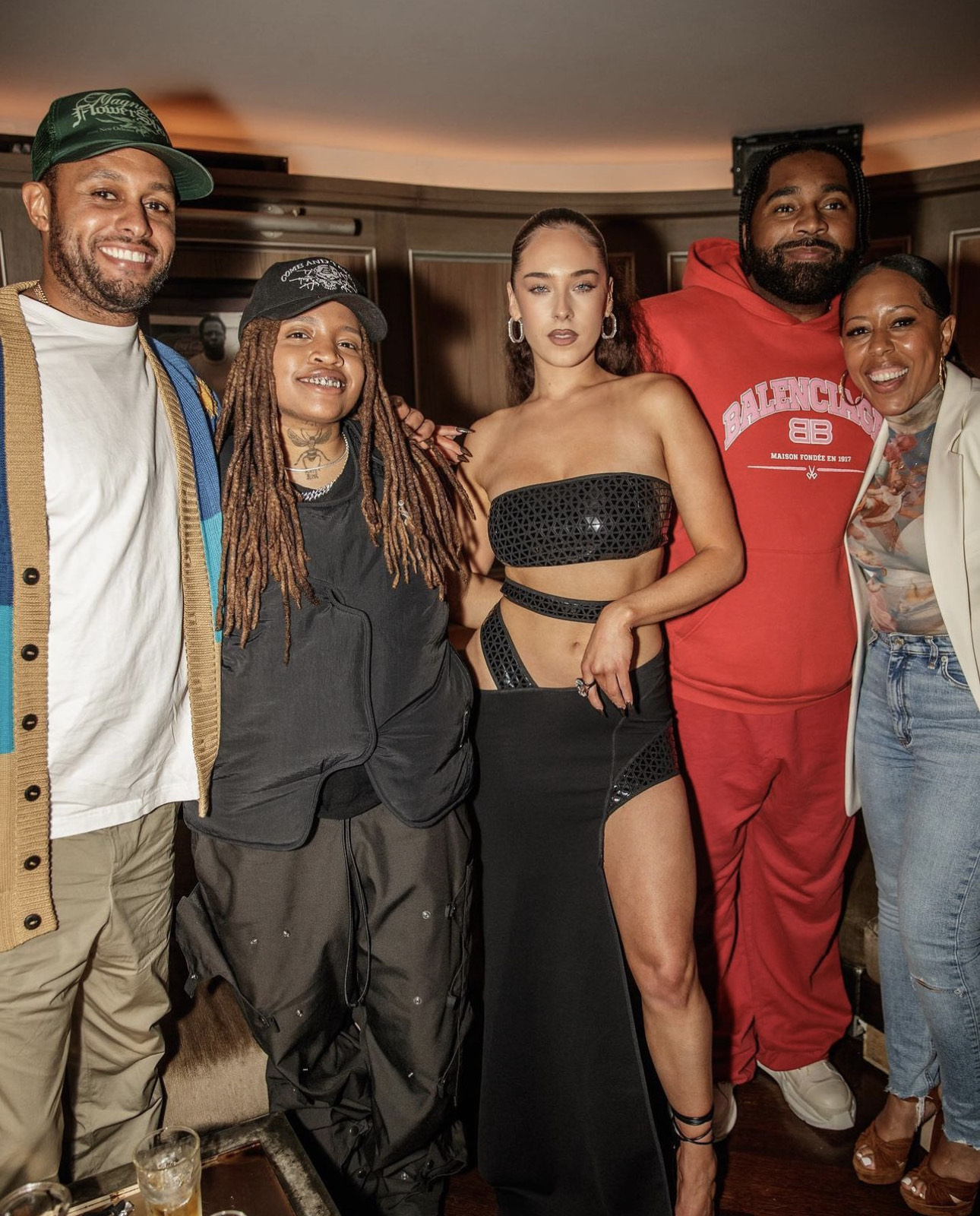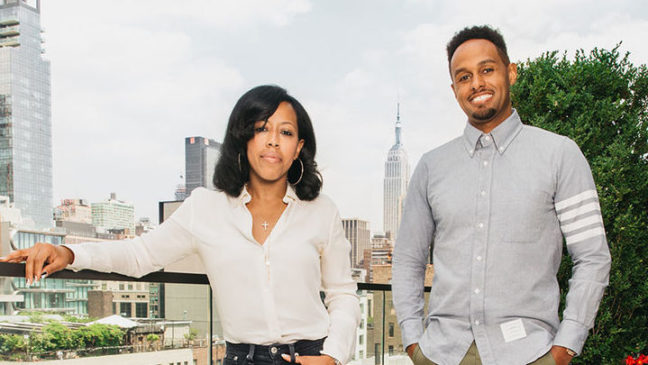Roc Nation is a renowned entertainment company founded by Shawn “Jay-Z” Carter in 2008. With its headquarters in New York City, Roc Nation has established itself as a powerhouse in the music, sports and entertainment industries. Roc Nation has become synonymous with excellence and has played a pivotal role in shaping the careers of numerous influential artists from Rihanna, J.Cole, and more.
Omar Grant, Co-President of Roc Nation, has an impressive background in the music industry. Omar began his career as an assistant tour manager for Destiny’s Child. He then went on to work as a tour manager for each of the group’s members individually, including Kelly Rowland, Michelle Williams and Beyoncé. Building on his experience, Grant later served as an A&R for Roc Nation in 2011. With his extensive knowledge and expertise, Grant plays a crucial role in the operations and success of Roc Nation Records.
Shari Bryant, the Co-President of Roc Nation, is a seasoned veteran in the music industry. Her journey began at just 16 years old as an intern at Roc-A-Fella Records. Throughout her career, she has worked with esteemed labels such as Def Jam, Atlantic Records, Warner Bros and Alamo Records. Recognizing her exceptional talent and expertise, Shawn “Jay-Z” Carter appointed her as Co-President of the Roc Nation Label, solidifying her position as a key figure in the company’s leadership. Shari Bryant continues to make significant contributions to the success and growth of Roc Nation.
Shari & Omar join EBONY for a conversation about the evolution of R&B, continuing the legacy of Roc Nation and their contributions to the company.
EBONY: How was your experience interning for Roc-A-Fella Records?
Shari Bryant: I always say it was like the boot camp for me that really just kind of like, prepared me for what I didn’t know I was being prepared for. Rockefeller was very boutique when I started. It was in 1999, and everyone kind of did multiple jobs. It just taught me early on how to multitask. It was like a family-oriented environment. So that was also helpful for someone like me, who was coming in at 16 years old and still hadn’t really found her voice and was still shy and didn’t know how to navigate. As well as the business of music, it was all new to me. So having that close-knit family environment really helped me to like, explore and not be afraid. It taught me. It gave me a well-rounded view of the different aspects and angles of the business. Everybody had to do everybody else’s job, in a sense of like there’s not anything too small, anything too big for you to handle, and you never knew what you were walking into. I always say that opportunity afforded me and prepared me for unbeknownst.

Your first job was as assistant tour manager to Destiny Child right after college. How did that come about?
Omar Grant: I was interning at Columbia Records … for a woman named Yvette Noel-Schure, who’s like a mentor to me in this business, who was Beyoncé’s publicist at that time and still is but she was Beyoncé’s publicist at Columbia Records. As I’m sure Shari did, we treated our internship like we were getting paid, right? We were going in every day and showing our worth and obviously, Destiny’s Child, Beyonce was signed to Columbia Records. Matthew Knowles who is her father and was her manager at the time.
It was really being at the right place at the right time and “preparation meets opportunity” kind of thing. When I graduated from school, they asked me if I wanted to go as an assistant tour manager on Beyoncé’s Dangerously In Love tour. Who wouldn’t want to jump on that opportunity? I think I pushed myself to do that because I always wanted to do A&R. I knew that from the jump. I studied some of the people who were ahead of me like Steve Stoute and Chris Lighty, who started their careers as tour managers. So, I thought I had to start there to get my foot in the door and follow their footprints. That was the reason for me going into being a road manager.

Why the focus on R&B right now? Do you think R&B ever left the scene or just no one was checking for it?
Omar Grant: I mean we both can dive in Shari but I don’t know, it’s a really sensitive or touchy subject. Everyone has their opinion. We have one of our mentors and good friends like Jeff Robinson, who prides himself to say that he’s been holding the flag long and R&B never went anywhere, right. Which I somewhat agree with him. I also believe all genres in that matter, not just R&B have to evolve and have to change right? So we’re gonna see genres that have ups and downs. They’re not gonna go anywhere, they’re staples in music, they’re cemented in culture. So it’s not like the genre is gonna go anywhere, but we’re gonna have ups and downs as the genres evolve. R&B wasn’t the same as it was 10 years ago or wasn’t the same when it was 20 years ago, wasn’t the same when it was in the Motown era or the early rhythm and blues era.
Shari Bryant: I completely agree. We didn’t sit down and say okay our initiative is going to be that we’re going to make sure that we focus on R&B when developing this label, it’s just naturally ingrained in who we are and our culture and the authenticity. R&B tends to evoke a lot of emotion when you’re listening to the music and we’re about evoking emotion. We’re about music that transcends and helps get you through times and when you think about all of that, then there’s no way to escape R&B. You can deliver that with hip-hop as well, but R&B has to be in that conversation. I don’t think we can get around that.
What is Roc Nation’s process of signing new artists?
Omar Grant: I think it’s simple: we move on signing new artists based on what we love and give it the “goosebumps” test. If we hear something and we love it, we’re gonna sign it. We’re going to back it no matter how many streams it has or how many followers the artist has. We believe that those analytics are cool but like I said before, we don’t base ourselves on signing artists solely on that. One thing I’d say about R&B is I think we need a lot more variety. I think 10 or 20 years ago, we had a lot more variety. We had Mariah Carey, Whitney Houston, Musiq Soulchild, and Erykah Badu. To me, when signing an artist, I look for what’s different out there and where’s the lane or avenue that we can go with someone that just feels unique. For example, Ambré feels like the modern-day Tracy Chapman which I think is not out there. Maeta to me feels like the modern-day Whitney Houston, I don’t know if we have someone in the R&B space like this.
Shari Bryant: We don’t have any kind of guidelines in terms of what it needs to look like, this is what it needs to feel like. Most times it’s just about meeting that person, listening to the music and seeing how it makes you feel in that moment. I think that was really how Ambré, Maeta and even Dixon got on our roster. The good thing about that is the development work that we’ve done with those artists, now we’re getting inbound and that was part of the job. Let’s create conversation so that people can start coming to us and we don’t have to look for every little thing that we’re looking to sign. We are starting to create conversation in the R&B space and that allows for other people who come to us about their R&B artists or R&B artists coming to us directly or hitting us up in the DMs, there’s so many different avenues.

Do you think artists nowadays still need artist development, especially in the world of social media and TikTok?
Shari Bryant: 1,000% artist development is key and it depends on what business you’re into. Right? Like for us, we’re in the business of legacy. We’re in the business of career artists. When you think about that, that takes a lot of time, that takes a lot of consistency, that takes a lot of strategy. There’s no way that’s happening without a team helping you to develop. I’m not saying that the team has to be part of the label, but you do need a team. It’s somebody there helping to understand what your brand is, and how you reach other people outside of your music, putting your tour together, your show together and you need background singers, all of those things are crucial when you’re thinking about legacy and that’s the business that we’re in.
Omar Grant: Yeah, absolutely. I would just add that it’s the business that we’re in. Look at who our chairman is— one of the best artists in the world—and the legacy of the artists that come from that tree, whether it’s Rihanna, Kanye and J. Cole. We are in the business of continuing that legacy and signing and developing the artists who are going to continue and carry the flag.
